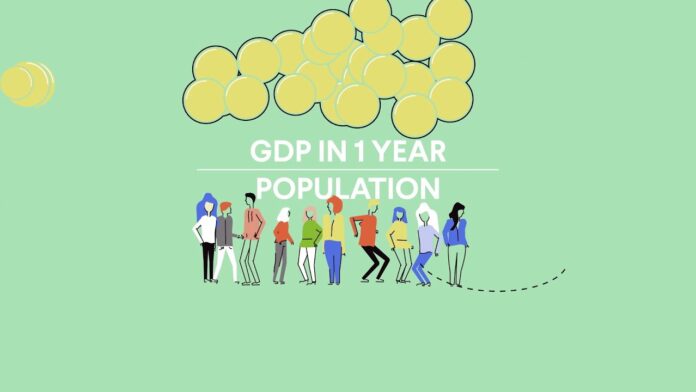Climate change is one of the most pressing environmental challenges facing the world today. The scientific consensus is clear: human-induced climate change is a reality, and the impacts are already being felt around the globe. As policymakers and world leaders grapple with how to address this complex issue, it is crucial to understand the science behind climate change, the potential impacts, and the various policy approaches being considered.
Overview of Climate Change
Causes of Climate Change
- The primary driver of climate change is the increased concentration of greenhouse gases (GHGs) in the Earth’s atmosphere, such as carbon dioxide (CO2), methane (CH4), and nitrous oxide (N2O).
- These GHGs are emitted through human activities, including the burning of fossil fuels, deforestation, and industrial processes.
- As the concentration of GHGs in the atmosphere increases, it traps more heat from the sun, leading to a gradual warming of the planet.
The Science of Climate Change
- Climate change is a complex phenomenon, influenced by various natural and human-induced factors.
- Scientists use a combination of observational data, climate models, and historical records to understand the drivers and dynamics of climate change.
- The Intergovernmental Panel on Climate Change (IPCC) is the United Nations body responsible for assessing the science related to climate change and providing policymakers with regular updates.
The Role of Human Activities
- The burning of fossil fuels, such as coal, oil, and natural gas, is the primary source of GHG emissions and a major contributor to climate change.
- Other human activities, such as agriculture, deforestation, and industrial processes, also play a significant role in increasing GHG emissions.
- The level of GHG emissions is directly linked to economic development and energy consumption patterns, creating complex challenges for policymakers.
Impacts of Climate Change

Environmental Impacts
- Rising global temperatures are causing glaciers and Arctic sea ice to melt, leading to sea level rise and the loss of habitats for various species.
- Extreme weather events, such as heatwaves, droughts, floods, and hurricanes, are becoming more frequent and intense due to climate change.
- Changing precipitation patterns are affecting water availability and agricultural productivity in many regions.
Societal Impacts
- Climate change is exacerbating existing social and economic inequalities, with vulnerable populations, such as the poor and marginalized communities, being disproportionately affected.
- Displacement and migration due to environmental degradation and natural disasters can lead to social unrest and conflict.
- The impacts of climate change on human health, including the spread of infectious diseases and the increased frequency of heat-related illnesses, are a growing concern.
Economic Impacts
- Climate change is expected to have significant economic consequences, including the costs of adapting to its effects and the potential loss of economic productivity and assets.
- Sectors such as agriculture, tourism, and infrastructure are particularly vulnerable to the impacts of climate change.
- The costs of mitigating and adapting to climate change are substantial, but the long-term economic benefits of action are likely to outweigh the costs of inaction.
Current Policies and Regulations

International Agreements
- The United Nations Framework Convention on Climate Change (UNFCCC) is the primary international agreement that addresses climate change, with the Paris Agreement being the most recent and prominent.
- The Paris Agreement aims to limit global temperature increase to well below 2°C above pre-industrial levels, with efforts to limit it to 1.5°C.
- Countries participating in the Paris Agreement have submitted Nationally Determined Contributions (NDCs), which outline their plans for reducing GHG emissions and adapting to climate change.
National and Regional Policies
- Many countries have implemented national climate change policies and regulations, such as carbon pricing schemes, renewable energy targets, and energy efficiency standards.
- Regional initiatives, such as the European Union’s Emissions Trading System (EU ETS), have also been established to address climate change at a regional level.
- The level of ambition and the effectiveness of these policies vary significantly across different countries and regions.
Sectoral Regulations
- Specific sectors, such as energy, transportation, and industry, have been subject to various regulations and policies aimed at reducing GHG emissions.
- Examples include vehicle emissions standards, renewable energy mandates, and energy efficiency requirements for buildings and appliances.
- The implementation and enforcement of these sectoral regulations can be challenging, as they often require balancing environmental concerns with economic and social factors.
Challenges in Addressing Climate Change
Political Challenges
- Climate change is a complex, long-term issue that often involves trade-offs between short-term economic interests and long-term environmental concerns.
- Partisan political divides and the influence of special interest groups can hinder the development and implementation of effective climate policies.
- The global nature of climate change requires international cooperation, which can be challenging to achieve due to differences in national interests and priorities.
Economic Challenges
- The transition to a low-carbon economy requires significant investments in renewable energy, energy efficiency, and other clean technologies, which can be perceived as economically costly in the short term.
- Concerns over job losses in carbon-intensive industries and the potential impact on economic competitiveness can create resistance to climate policies.
- The unequal distribution of the costs and benefits of climate action can exacerbate social and economic inequalities.
Technological Challenges
- Developing and scaling up the necessary technologies to mitigate and adapt to climate change, such as renewable energy, carbon capture and storage, and alternative transportation fuels, can be technologically and financially challenging.
- The pace of technological change may not be sufficient to meet the urgency of climate action required.
- Ensuring the widespread adoption and implementation of clean technologies can also be a significant challenge.
Social and Behavioural Challenges
- Changing individual and societal behaviours, such as transportation and consumption patterns, can be difficult to achieve, especially in the absence of strong policy incentives or social norms.
- Climate change communication and education efforts are crucial but can be hampered by misinformation, denial, and a lack of public understanding of the issue.
- Addressing the disproportionate impacts of climate change on marginalized communities and ensuring a just transition to a low-carbon economy are important social considerations.
Proposed Policy Solutions
Carbon Pricing
- Implementing a price on carbon, either through a carbon tax or a cap-and-trade system, is widely considered one of the most effective policy tools for reducing GHG emissions.
- Carbon pricing can incentivize the adoption of clean technologies and low-carbon practices, while generating revenue that can be used to fund further climate action and support affected communities.
- Designing an effective and equitable carbon pricing system, however, can be politically and technically challenging.
Renewable Energy Deployment
- Rapidly scaling up the deployment of renewable energy sources, such as solar, wind, and hydropower, is crucial for transitioning to a low-carbon economy.
- Policy support, such as renewable energy targets, feed-in tariffs, and tax incentives, can help drive the growth of renewable energy.
- Investing in grid modernization and energy storage technologies can enhance the integration of renewable energy into the electricity system.
Energy Efficiency Improvements
- Improving energy efficiency across various sectors, including buildings, transportation, and industry, can significantly reduce GHG emissions.
- Policies such as building energy codes, appliance and vehicle efficiency standards, and energy efficiency incentive programs can help drive these improvements.
- Investing in research and development for new energy-efficient technologies can also contribute to climate change mitigation.
Sustainable Land Use and Forestry
- Protecting and restoring natural ecosystems, such as forests, wetlands, and grasslands, can help sequester carbon and mitigate the impacts of climate change.
- Sustainable land use policies, including forest conservation, sustainable agriculture practices, and reforestation efforts, can play a vital role in climate change adaptation and mitigation.
- Incorporating the value of ecosystem services and natural capital into policy and decision-making frameworks can help incentivize sustainable land use practices.
Adaptation and Resilience
- Adapting to the unavoidable impacts of climate change, such as sea level rise, extreme weather events, and water scarcity, is crucial for building resilient communities and ecosystems.
- Policies and investments in infrastructure, early warning systems, disaster risk reduction, and ecosystem-based adaptation can help strengthen the resilience of communities and economies.
- Ensuring equitable access to adaptation measures and supporting the most vulnerable populations are essential components of climate change adaptation policies.
International Cooperation and Financing
- Strengthening international cooperation and coordination is crucial for addressing the global nature of climate change.
- Increased climate finance, both public and private, is necessary to support mitigation and adaptation efforts, especially in developing countries.
- Mechanisms such as carbon markets, technology transfer, and capacity-building can facilitate international collaboration and the sharing of best practices.
Conclusion
Addressing the complex challenge of climate change requires a comprehensive and coordinated approach that combines scientific understanding, policy frameworks, technological innovations, and social engagement. While significant progress has been made in recent years, with the adoption of international agreements and the implementation of various climate policies, much more needs to be done to effectively mitigate and adapt to the impacts of climate change.
Policymakers, businesses, and citizens around the world must work together to overcome the political, economic, technological, and social barriers to climate action. By implementing a suite of policy solutions, ranging from carbon pricing and renewable energy deployment to sustainable land use and adaptation measures, we can drive the transition to a low-carbon, climate-resilient future. This transition will not only help protect our environment but also create new economic opportunities and improve the well-being of communities across the globe.
The time to act on climate change is now. By embracing bold, evidence-based policies and fostering international cooperation, we can collectively rise to the challenge and secure a sustainable future for generations to come.









